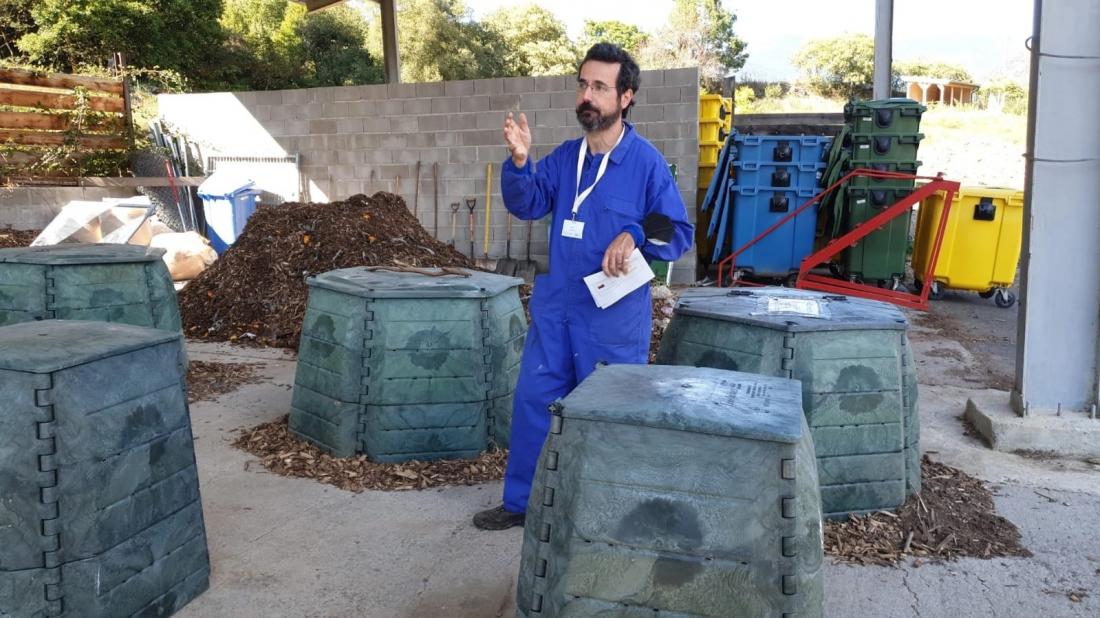SIRCLES in Spain meets with a master composter to better understand the challenges of biowaste management

This article forms part of a series of publications under SIRCLES project to support circular economy opportunities for employment and social inclusion in our partner territories Palestine, Lebanon, Spain, Tunisia, Italy, Greece, and Jordan.
In this article, you get to meet Ramon Plana González-Sierra, PhD in biology at the University of Vigo in 2007, independent international consultant and one of the most recognized experts in composting and organic waste management in Spain. He is known as master composter and in his 25 years of experience he has advised private companies, administrations and public organizations from Europe, Africa, America and the Middle East, in the implementation of facilities of different scales and characteristics. He has even patented equipment for organic treatment using aerobic and anaerobic biological processes. Ramon has also been involved in SIRCLES project and trained the seven partners of SIRCLES in “The technical training course in the operation and management of community composting sites” in Sort, Spain.
Dr. González-Sierra insisted on the importance of the training on the correct implementation of compost and that it must be expanded to reach all the stakeholders. Citizens, local businesses, technicians, experts, politicians, schools and local farmers amongst other stakeholders must have basic knowledge of composting, how it works, who are the master composters, the environment and economic cost of composting. Also, they must be kept in the loop regarding the different stages of the implementation, the production of compost and where and how it is being used. Finally, such a training allows all the stakeholders to face any type of challenge.
On the other hand, it is worth mentioning the difficulties that compost facilities had to face during and post the COVID-19 pandemic, noting that the generation of bio-waste did not stop during the pandemic and will not stop after it. The main challenge was to resume individual collection and local composting safely and risk free. During the first months of the pandemic, many municipalities in Spain, conducted a health and risk analysis and took various decision regarding the modifications to be made to keep the service operational. The second challenge is related to the change in the people’s way of life after the pandemic, namely the changes in consumption habits. Dr. González-Sierra’s experience and knowledge will greatly benefit SIRCLES project in order to adapt to these new realities.
Finally, Dr. González-Sierra was dismayed to announce that “the increase in consumption of plastics and processed food can have negative effects on the composting of food waste”. Therefore, it’s essential to raise environmental awareness, especially about waste management and the community’s role in it.









